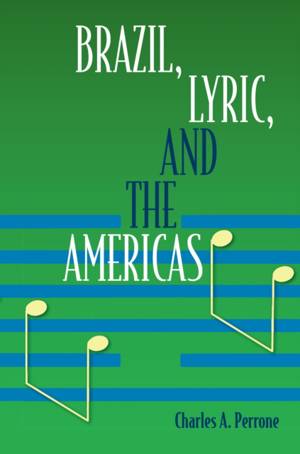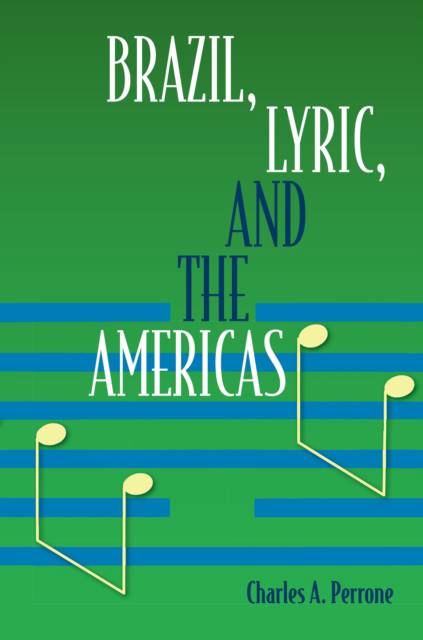
- Afhalen na 1 uur in een winkel met voorraad
- Gratis thuislevering in België vanaf € 30
- Ruim aanbod met 7 miljoen producten
- Afhalen na 1 uur in een winkel met voorraad
- Gratis thuislevering in België vanaf € 30
- Ruim aanbod met 7 miljoen producten
Zoeken
Omschrijving
"This is Perrone at his most brilliant. Erudite but accessible, thorough but playful: Brazil, Lyric, and the Americas is the latest contribution by the most knowledgeable U.S.-based scholar of the Brazilian lyric."--Severino Joao Albuquerque, University of Wisconsin"Perrone retraces the dialogue of the Brazilian lyric with the poetry of the Americas in the generous spirit that the poets' utopia of solidarity will serve as a counterpoint to the harsher side of globalization."--Luiza Moreira, Binghamton UniversityIn this highly original volume, Charles Perrone explores how recent Brazilian lyric engages with its counterparts throughout the Western Hemisphere in an increasingly globalized world. This pioneering, tour-de-force study focuses on the years from 1985 to the present and examines poetic output--from song and visual poetry to discursive verse--across a range of media.At the core of Perrone's work are in-depth examinations of five phenomena: the use of the English language and the reception of American poetry in Brazil; representations and engagements with U.S. culture, especially with respect to film and popular music; epic poems of hemispheric solidarity; contemporary dialogues between Brazilian and Spanish American poets; and the innovative musical, lyrical, and commercially successful work that evolved from the 1960s movement Tropicalia.
Specificaties
Betrokkenen
- Auteur(s):
- Uitgeverij:
Inhoud
- Aantal bladzijden:
- 264
- Taal:
- Engels
Eigenschappen
- Productcode (EAN):
- 9780813054896
- Verschijningsdatum:
- 4/04/2017
- Uitvoering:
- Paperback
- Formaat:
- Trade paperback (VS)
- Afmetingen:
- 152 mm x 229 mm
- Gewicht:
- 394 g

Alleen bij Standaard Boekhandel
+ 76 punten op je klantenkaart van Standaard Boekhandel
Beoordelingen
We publiceren alleen reviews die voldoen aan de voorwaarden voor reviews. Bekijk onze voorwaarden voor reviews.








